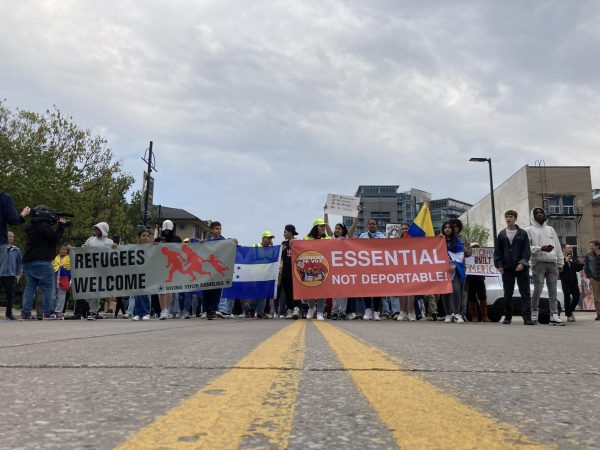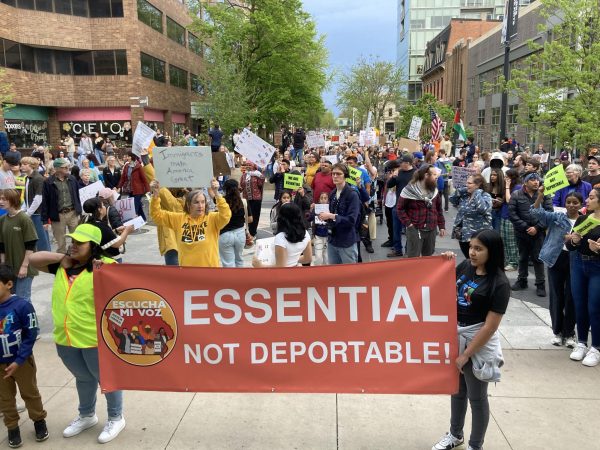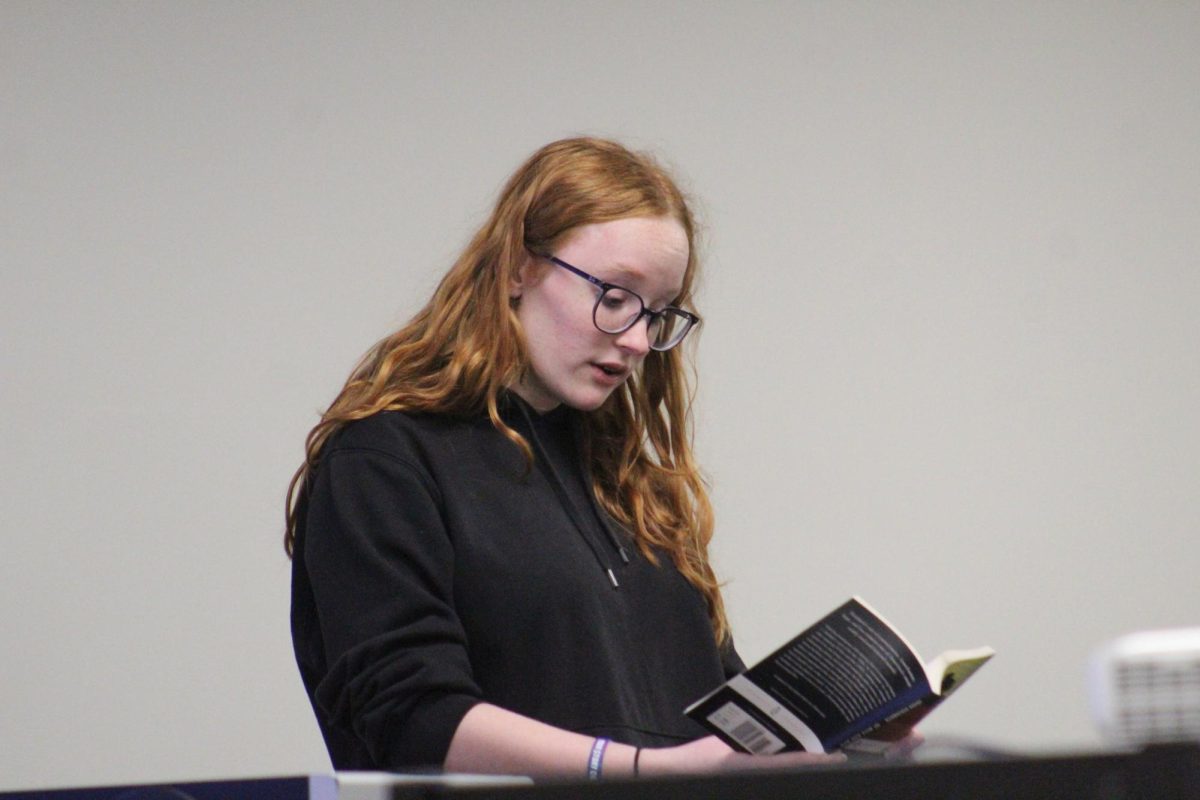Iowa City saw more protests May 1 as Escucha Mi Voz, a local Spanish-speaking organization, hosted a May Day protest focusing on the deportation of workers and the continued poor treatment of immigrant laborers. The changes to the immigration process have mainly stemmed from President Trump’s recent executive orders, including stronger enforcement of alien registration requirements, increased vetting for visa applicants and an attempt at ending birthright citizenship in the US. These, along with the controversial deportation of Kilmar Abrego Garcia, have caused many immigrant communities to be concerned about the administration’s treatment of temporary workers and lawful permanent residents.
The protest started with a few speakers, including Ninoska Campos, a member of Escucha Mi Voz. She spoke about her experience working as an immigrant in construction and the story of how she was pulled over and had her papers checked while a coworker was being deported, despite neither of them driving the vehicle.
“I have fought very hard with Escucha Mi Voz, since the first day it started in Iowa,” Campos said. “I’m here in this fight and I’m going to keep fighting until God tells me it’s the end of the road.”

The protest involved a march, moving from the College Green Park to the Pedestrian Mall, where a larger area was set up for speakers. Political figures were also at the mall, including Iowa City Mayor Bruce Teague, Iowa City Mayor Pro Tem Mazahir Salih and Iowa Senate minority leader Janis Weiner. Teague stressed how Iowa City stood with its immigrant populations, despite national policy changes.
“In Iowa City we believe in justice, protecting our neighbors, honoring every story and lifting up those who have been pushed aside. This is not just a city commitment, this is a matter of basic human decency,” Teague said. “No matter your status, no matter your story, no matter your struggle, you belong here.”
Weiner also spoke about the protest while claiming that the working class had been undermined by the current administration. She focused on the role of immigrants as essential workers and the undermining of due process because of the rapid pace of deportations across the country.
“Remember, it wasn’t the CEOs and billionaires that got us through COVID. It was the nurses, the janitors, the cleaning crews [and] the grocery and food workers,” Weiner said.

Weiner’s speech continued into the rain as the protest came to an end. The protest ended with six total speakers: Campos, Alejandra Escobar, Yadira Castillom, Jorge Eliecer Gonzalez, Teague and Weiner. In addition to the recent deportations, they spoke about working conditions and the reality of working as an immigrant.
The protest was led by Alejandra Escobar, an organizer with Escucha Mi Voz, and it served as an unofficial follow-up to many other protests about the recent Trump administration. Escobar served as both a speaker and a translator for most of the protest, and she stresses that remembering that taking action is the most important in moments like now.
“When we don’t allow fear to be bigger than us, we can take action and change history. We have to do something. I understand there’s fear, but we have to be stronger than fear right now,” Escobar said.















